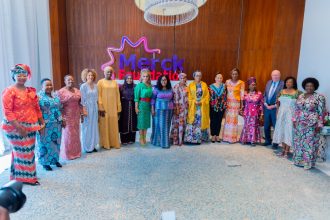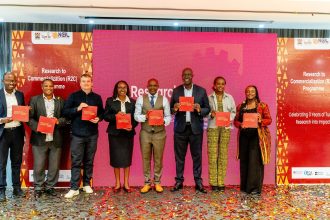By Lenah Bosibori
For years, Kenya’s arid and semi-arid lands have been a hotspot for hunger and malnutrition. Many government and NGO projects have come and gone bringing temporary relief, but little lasting change.
“The government and the non-government organizations move in so fast,” says Salash Leshornai, a fisheries officer and pastoralist from Samburu. “But their approach is often short-term. They solve problems for a season, then leave. There’s no real impact left behind.”
This realization pushed Leshornai, to think differently. Together with local groups in Kajiado County, he started the Aquaculture Learning Hub a community-led project that combines fish farming with fruit and vegetable gardening to fight hunger and build resilience in dry areas.
“Climate is changing faster than culture,” he says. “And people are growing faster than the land we depend on. We needed a system that works for us one that we own and sustain.”
At the Learning Hub, fish ponds sit among fruit trees that cool the air and provide shade. The same water from the ponds irrigates small gardens, creating a sustainable food system that provides both nutrition and income. The model has already inspired other communities in Samburu County to start their own versions.
Beyond providing food, the hub is giving women, youth, and school children in pastoralist areas a chance to take control of their future. “We’re teaching them to move from relying on relief to relying on themselves,” says Leshornai.
This kind of innovation was one of the highlights at the Kenya Transform Food Festival, hosted by the African Food Fellowship in Nairobi on October 24, 2025. The event brought together leaders from government, academia, and civil society to celebrate local food system innovations that are shaping Africa’s future.
“Food systems transformation is not just theory, it’s about courage and collaboration,” said Stella Kimani, Senior Policy Manager at Food4Education and one of the keynote speakers. “Africa doesn’t need heroes. It needs architects who can build lasting solutions.”
The festival also showcased how fellows across Kenya are using leadership and partnerships to tackle food insecurity. From healthy school meal programs in informal settlements to data-driven aquaculture initiatives that make women’s roles more visible, these projects are helping communities find their own solutions to hunger and malnutrition.
“Pastoralism alone cannot sustain our people anymore,” added Leshornai, “Through aquaponics combining aquaculture and horticulture we can secure nutritious food even in the dry season.”
As the night ended, one message stood out clearly: lasting food security in Kenya’s arid lands will come not from outside aid, but from within communities leading their own transformation.
Celebrating Courage in Food Systems Leadership
Africa’s food systems stand at a pivotal moment. With the CAADP Kampala Declaration signed in January 2025, African leaders reaffirmed their commitment to end hunger by 2035 by increasing sustainable agricultural production, tripling intra-African trade in agro-food items, and reducing post-harvest losses. Unlike previous frameworks, the Kampala Declaration puts people not just production at the heart of food systems transformation.
The Nairobi festival reflected that spirit, giving African Food Fellows a platform to showcase their Food Systems Actions, real-world projects tackling malnutrition, data gaps, and climate resilience.
Salash Leshornai, alongside Kelvin Muli and Robert Shumari, presented their integrated Aquaculture–Horticulture Systems (Aquaponics) project in Kajiado and Samburu.
Elsewhere, Fellows Proscovia Alando, Mary Opiyo, Alice Hamisi, and Ruth Lewo showcased their work on bridging data gaps in aquaculture to make women’s contributions visible and attract more support.
“Through data, we’re connecting farmers with financiers, insurers, and markets,” they said. “We’re turning information into actionable insights that improve livelihoods and food security.”
The Food System Action Prize went to Feeding Futures, an initiative by Julia Kamau, Sylvia Kuria, and Stephen Muthui, which delivers nutritious indigenous meals to children in Kenya’s informal settlements. “We envision a country where all children have access to organic and healthy food,” Stephen said. “We’re not doing them a favor we’re ensuring their constitutional right to food.”
“At the African Food Fellowship, we curate the conditions for people to collaborate and act,” said Claudia Piacenzia, Head of Networks and Delivery. “We need to shift power dynamics, secure investments, and influence policy. That’s what a human-centered food system looks like.”




